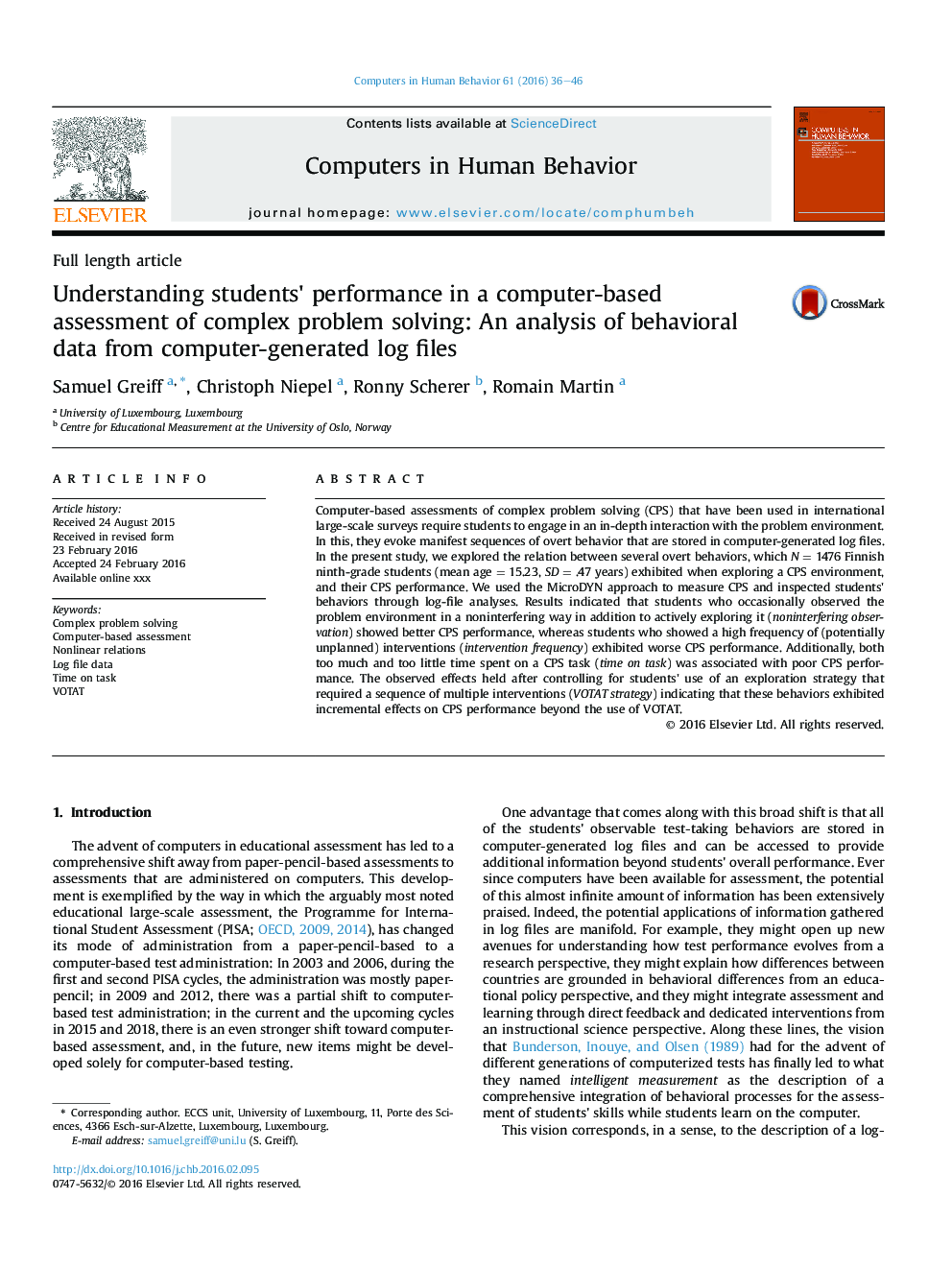| Article ID | Journal | Published Year | Pages | File Type |
|---|---|---|---|---|
| 6836979 | Computers in Human Behavior | 2016 | 11 Pages |
Abstract
Computer-based assessments of complex problem solving (CPS) that have been used in international large-scale surveys require students to engage in an in-depth interaction with the problem environment. In this, they evoke manifest sequences of overt behavior that are stored in computer-generated log files. In the present study, we explored the relation between several overt behaviors, which N = 1476 Finnish ninth-grade students (mean age = 15.23, SD = .47 years) exhibited when exploring a CPS environment, and their CPS performance. We used the MicroDYN approach to measure CPS and inspected students' behaviors through log-file analyses. Results indicated that students who occasionally observed the problem environment in a noninterfering way in addition to actively exploring it (noninterfering observation) showed better CPS performance, whereas students who showed a high frequency of (potentially unplanned) interventions (intervention frequency) exhibited worse CPS performance. Additionally, both too much and too little time spent on a CPS task (time on task) was associated with poor CPS performance. The observed effects held after controlling for students' use of an exploration strategy that required a sequence of multiple interventions (VOTAT strategy) indicating that these behaviors exhibited incremental effects on CPS performance beyond the use of VOTAT.
Related Topics
Physical Sciences and Engineering
Computer Science
Computer Science Applications
Authors
Samuel Greiff, Christoph Niepel, Ronny Scherer, Romain Martin,
